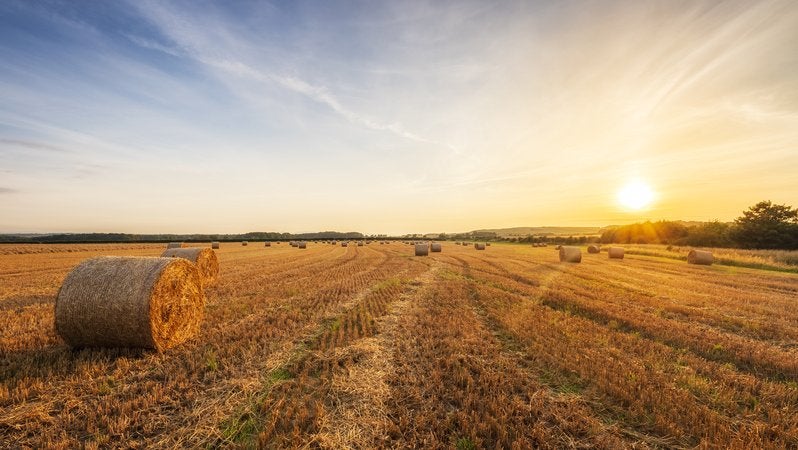Navigating Land Loans

Owning land can be a truly rewarding experience. Whether it’s inherited, intended for future development, or used as a retreat, owning property offers both immediate rewards and long-term benefits, as well as the potential for creating cherished memories.
For those considering purchasing land or currently owning property, there may come a time when upgrades to the property are necessary—such as improving roads or building structures like barns or cabins. Depending on the size of the property and the scope of the scheduled enhancements, financial assistance may be needed to bring the plans to life.
Brandon Simpson from First South Farm Credit discussed the types of loans available for acquiring and improving land to help potential customers navigate this process. As VP/Branch Manager at the Bay Minette office, Simpson is part of an association with over a century of experience in land financing and more than 40 branches in Alabama, Mississippi, and Louisiana. Simpson discussed the various loan options available for prospective landowners and those seeking to upgrade their current properties.
Different Types of Land Loans
Whether someone is looking to buy a small or large tract of land, or to enhance an existing property, securing financing is often necessary. For instance, purchasing a larger plot with plans to farm, establish a hunting lodge, create a pond, or build a dream home will likely require a land improvement loan to bring these plans to life.
There are many types of property improvements that boost value and could qualify for financing. Those might include road construction, clearing land through timber harvesting, building storage structures or barns, extending utilities, or creating a fishing pond. Given the significant investment these projects may require, borrowing from First South Farm Credit can help landowners achieve these goals.
Why Land Loans?
Land loans offer considerable flexibility, making them an important financial tool. They typically involve a lower initial investment, allowing buyers to acquire property that may appreciate over time, and provide options in how the land can be developed.
Vacant land is usually less costly than properties with existing buildings, making it a more affordable entry into real estate. Additionally, undeveloped land often incurs lower property taxes compared to developed properties. Adding land to an investment portfolio helps spread risk, as real estate often behaves differently than stocks and bonds.
Land Loan Criteria
According to Simpson, if a property or the proposed improvements meet certain criteria, First South Farm Credit is prepared to provide the necessary funds. Here are several scenarios that may qualify for financing:
1.Home Construction
If purchasing land with plans to build a residence, a loan that covers both the land acquisition and construction might be available.
2.Refinancing
Existing land loans can sometimes be refinanced to consolidate multiple loans into one, secure lower interest rates, or gain better repayment terms. Cash-out refinancing may also be an option to access equity in the land. Refinancing can be an important tool for managing land loans, but borrowers must carefully consider and understand all the terms and conditions that come alongside refinancing offers. Those interested in refinancing should also take into account their long-term plans and consult financial advisors to recognize the implications of refinancing loans.
3.Recreational Uses
Buying land for recreational activities such as hunting, fishing, or camping may require additional investments for clearing land, building blinds, cabins, or other facilities.
4.Agricultural Purposes
Financing is often available for buying farm or ranch land and making improvements like fencing and irrigation. Specialized farming ventures such as orchards or poultry operations may also be eligible.
5.Investment
Land purchased for long-term appreciation, including plans for future timber sales or development, may qualify for financing.
6.Expansion
Businesses or individuals might acquire adjacent properties for future growth or to meet zoning regulations.
7.Conservation Efforts
Loans may support land purchases aimed at conserving natural habitats, forests, wetlands, or other ecologically significant areas.
8.Mineral Rights
Some lenders offer loans for purchasing mineral rights, which can be separate from the land’s surface ownership. This financing for natural resources such as minerals, oil or gas can facilitate the exploitation of natural resources like minerals or oil but requires careful consideration and expertise. Those considering this option may need to seek specialists in the field to thoroughly understand all considerations.
Additional Considerations
When presenting proposals to a loan officer, discussions will cover the details of the loan, including down payments, payment terms, and possibly environmental considerations.
Summary
Land loans provide a versatile financing solution suitable for a range of needs, from personal enjoyment to profitable investments. By conducting thorough research and consulting with experts such as First South Farm Credit, potential borrowers can find the most suitable loan options for their unique circumstances and long-term objectives. These loans offer a practical way to acquire land for various uses, including agriculture, recreation, and investment, with numerous benefits that cater to diverse requirements.
Get In Touch with Your Loan Officer
Questions or concerns? We are here to help!